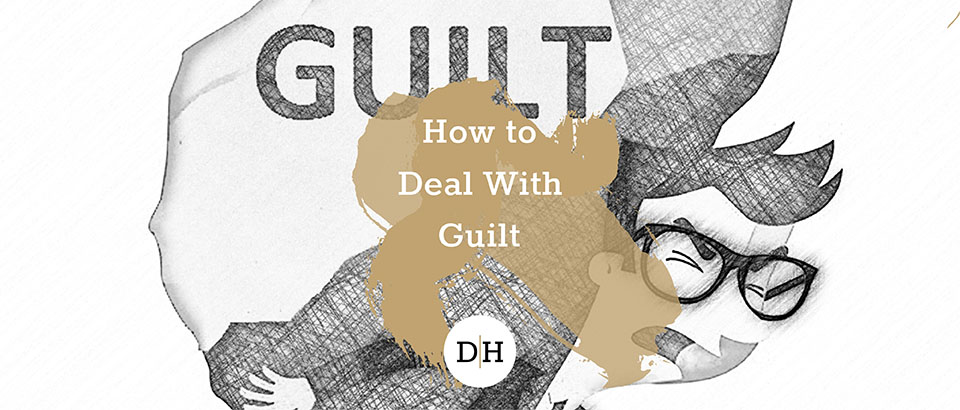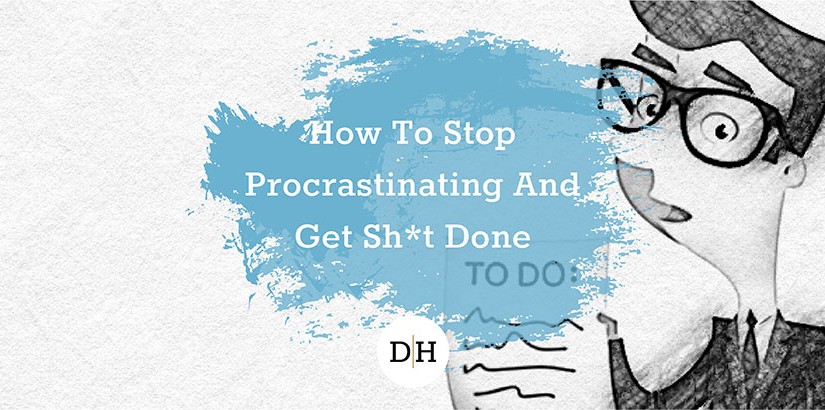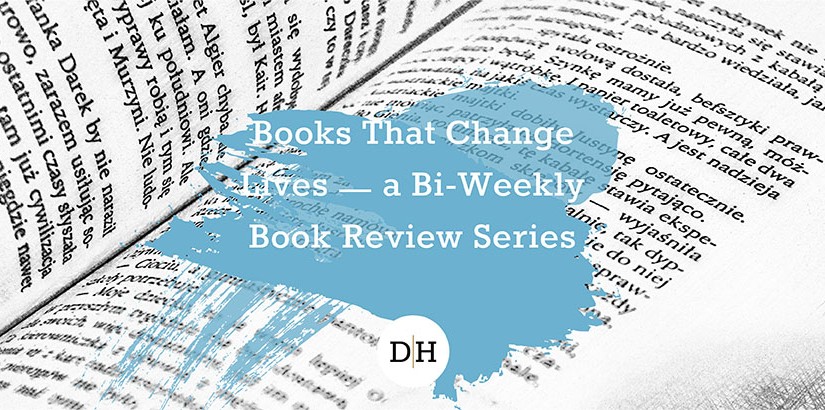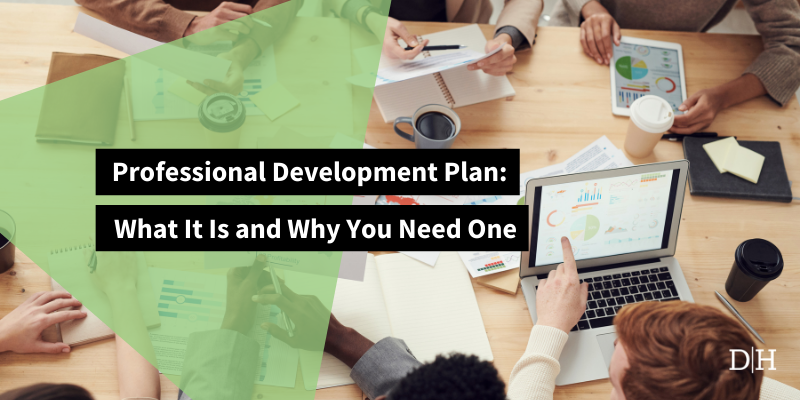Let’s talk about guilt. In just two months in 2013 my mother and my grandmother passed away, my wife gave birth to our daughter and had two surgeries due to complications from giving birth.
A very hard time for me and my family. But here’s where guilt comes into the picture: There is a very high likelihood that I played a role in my grandmother’s death. Not in a sinister, call-the-cops way… Let me explain.
A Word About My Grandmother
I was her first grandchild and I was always the closest to her. After my father passed away when I was 12 my grandma moved in with us. Even as an adult, living in the US we talked on a regular basis via Skype or telephone (she stayed in Germany when I moved).
But my grandmother had a certain personality quirk. She’d often sink into negative spirals, replaying conversations in her head and blaming herself for nonexistent flaws. If you’d said something and she misinterpreted it she would think about it for the rest of the day, trying to figure out what she did wrong.
This behavior became more extreme as she got older.
Our Final Conversation
The weeks after my mother’s passing were very hectic. We had a newborn, my wife was not doing too well, work was crazy and I was juggling a million responsibilities in Germany related to my mother’s estate.
In full crisis mode, I had been unable to schedule a call with my grandmother for quite some time. Instead, I was making regular calls to Germany, to speak to my brother and figure how to handle the legal implications of my mother’s death. I was on one of these calls when my grandmother entered the room, and asked to speak to me.
Usually I would always take time and chat with her, but today I didn’t have the time. I cut the conversation short, and moved on with my day.
The same night she died from a stroke.
You can tell me I had nothing to do with it. That she would have had the stroke anyway. But I am very sure that I was at least a contributing factor. I know that by sending her into one of her spirals, I had played a role in her passing.
How to Deal With Guilt
Guilt is a difficult burden, a heavy, crushing boulder. Most people carry some form of it on their shoulder. They carry it for a very long time, sometimes for a lifetime. This boulder weighs them down and makes life difficult. It’s weight eats up productivity and can take the joy out of life.
Allowing myself to succumb to this burden was not an option. The way I saw it at the time — and still do today — is that doing so would not be fair to my wife, my daughter, my business, my employees and or myself. Being a victim of guilt would leave me unable to care for those that depended on me.
To help those around me, I would need to free myself of the guilt weighing me down.
Three Steps To Ridding Yourself of Guilt
- Acceptance
If you’ve read my post about how to deal with loss, you’ll recognize this step. The quickest path to freeing yourself from crippling guilt lies in acceptance. Free yourself from a cycle of “did I, didn’t I”. My accepting your role in whatever happened, you can take the first step towards healing.
In my case, I accepted that I was potentially part of the reason that my grandma died when she did. Stoicism can also help with this, I’d suggest checking out this video on stoicism to see where it fits in.
- Make sure it does not happen again.
Whatever happened, evaluate what lead up to that moment and put safeguards in place to make sure it never happens again. This may mean changing your behavior, routines, or lifestyle. Be prepared to make big changes if necessary. You can’t afford to walk this path again.
After this experience, I began to make a serious effort to be more aware. It’s become an important part of my growth and has led me to pay closer attention my relationships with people in my life.
- Add it to your core values.
In the previous step you determined how you would change your behavior; now solve the why. Define, clearly, why you need to make these changes. Why is it so important? Add these reasons to your core values, and make goals based around them. Review the list regularly to ensure you’re making progress towards the positive change you need.
You Are Not Callous
Being guilt-free does not make you a sociopath. It doesn’t mean you’re uncaring. It doesn’t make you less of a human. It simply means that you’re taking steps to continue with your life in the best way possible. If there are people who depend on you, you owe it them to lift the burden of guilt off your shoulders.
But see this as a learning opportunity, a growth opportunity. By identifying what changes you need to make, you can adjust your core values to become a better person. The bottom line? Don’t allow guilt to weigh you down, use it to fuel your personal growth, and become a rock for everyone around you.
I should note however, that this isn’t something that happens overnight. Overcoming crushing guilt is a process that takes time. Especially coming to terms with, and accepting, your role in whatever happened. But think about this like a muscle. The more you work on accepting, preventing, and evaluating— the easier this entire process becomes.
I often write about some of these harsher realities of life, join me by subscribing to the blog. You’ll receive my latest updates, as soon as they’re online and readable. If you have questions, leave a comment and I’ll do my best to help.





2 comments On How to Deal With Guilt
The approach you take of acceptance of all that has occurred and making changes to ensure that it does not happen as well as adjusting your core values is great – I would add to the step of acceptance an evaluation of personal responsibility – perhaps that already is a core value for those that undertake the path you have suggested. I guess, if a sense of responsibility for the wellbeing of others is a core value, then our behaviors are not so much about alleviating guild but asking how can I be more caring, loving and discerning next time – it gets built into your second step too. Thank you for your blog, I enjoyed reading it.
Great feedback. Thank you Alison.